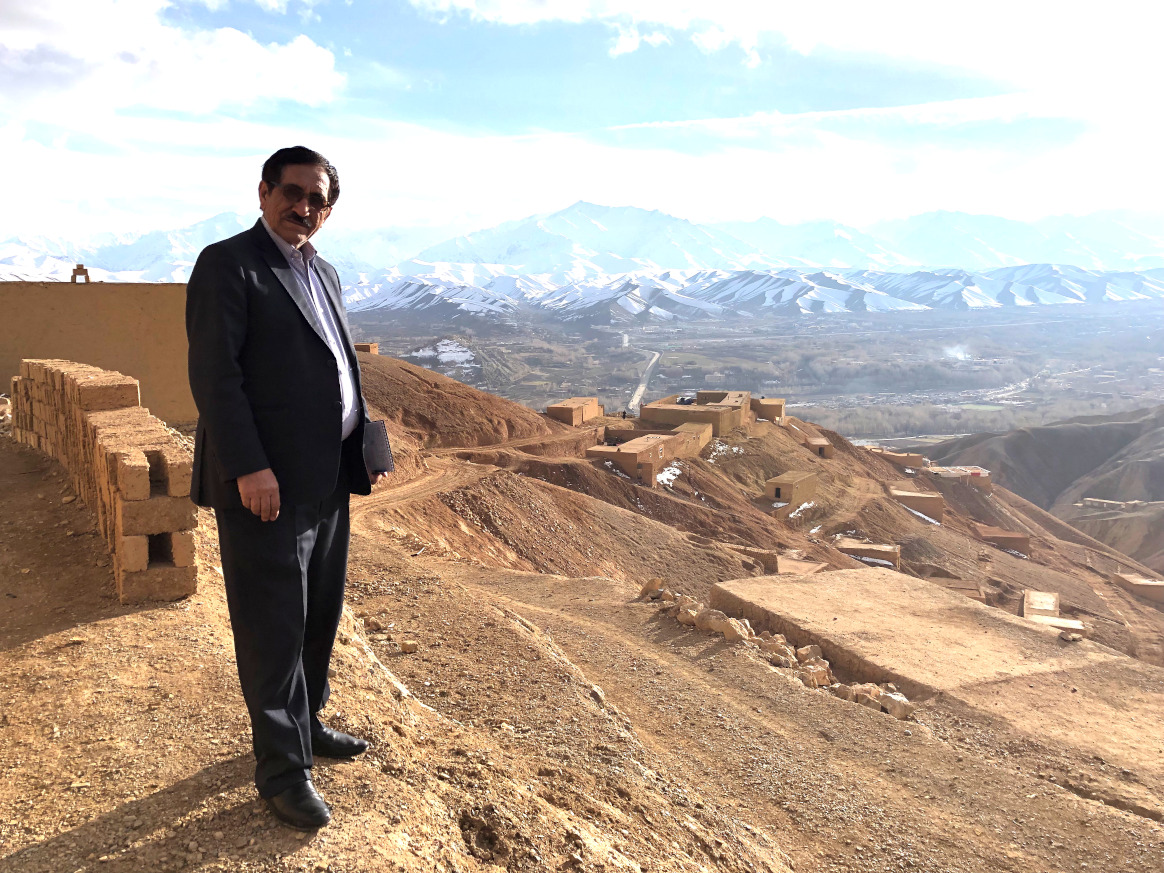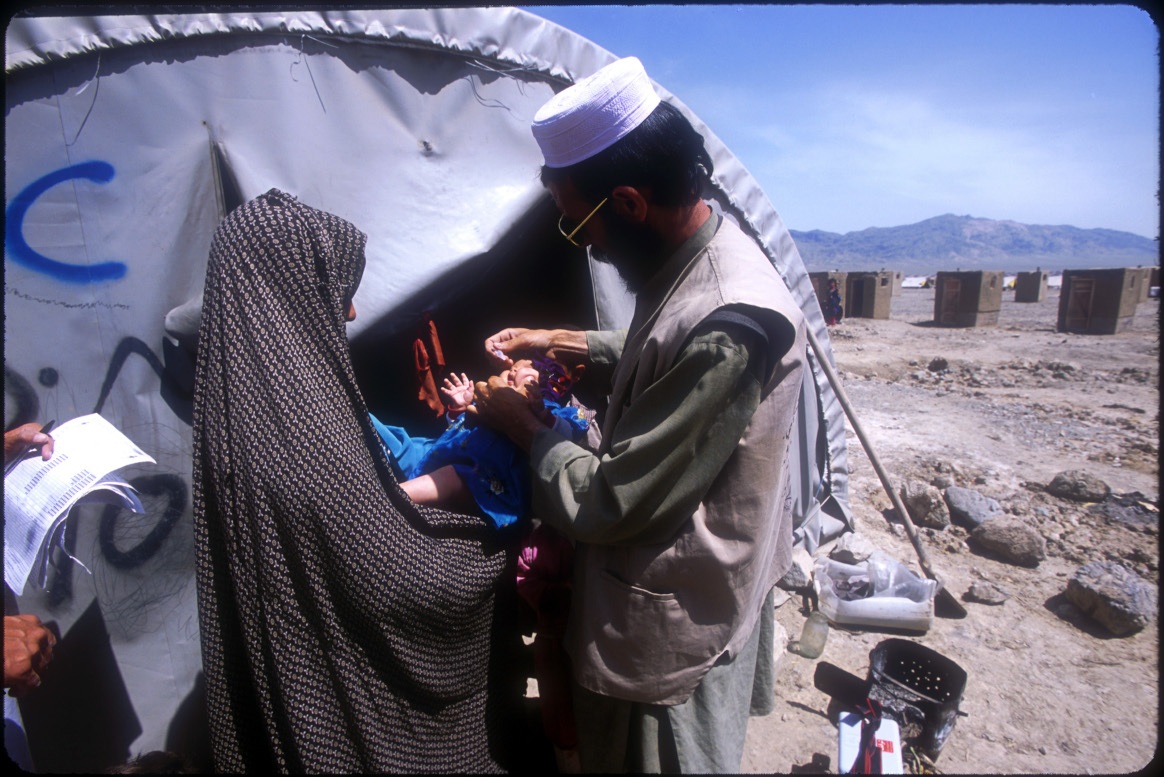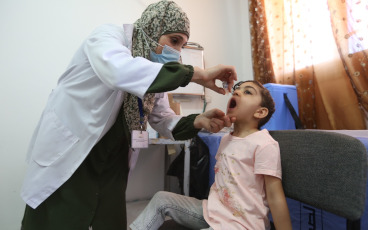A working life well spent
22 years as a polio eradicator in Afghanistan

When Dr Abdul Rahman Ghafoori began working with WHO’s polio eradication programme in the year 2000, polio was endemic in 30 countries across the world and WHO’s Afghanistan programme was tackling the virus on multiple fronts.
“Surveillance for AFP [acute flaccid paralysis – a sign that poliovirus may be present] began in Afghanistan in 1997 so we were able to track the number of children under 15 years who were paralyzed by the virus. We had 15 cases in the North but the virus was present all over the country at that time,” said Dr Ghafoori.
By the end of 2022, when Dr Ghafoori retired from the programme, polio was endemic in just two countries: Afghanistan and Pakistan. In Afghanistan, the total number of children paralyzed by the virus in 2022 was two, nationwide vaccination campaigns were taking place across the country, and a gold star polio surveillance system was keeping an eye out for the virus in all 34 provinces. For Dr Ghafoori, it was a working life well spent.
Newly graduated from the Military Medical Academy in Leningrad in the then-Soviet Union, Dr Ghafoori returned to Afghanistan in 1983, keen to serve his people, particularly the children of Afghanistan. He worked in a number of positions including with several international NGOs and, in 2000, joined WHO’s polio programme which had begun four years earlier.
His first role was as Provincial EPI Officer in Samangan province in the country’s north. The EPI – or Expanded Programme on Immunization – plays an important role in eradicating polio, bringing sustainable immunity by vaccinating against diseases including polio, diphtheria, tuberculosis, tetanus, pertussis and measles. When EPI coverage increases, it decreases children’s susceptibility to contracting poliovirus and preventing transmission.

From Samangan, he moved to Mazar-e-sharif, in neighbouring Balkh province. At the time of his retirement, he managed the programme’s work in the Central Region, covering Kabul and neighbouring provinces including Bamyan and Daikundi in the Central Highlands.
For Dr. Ghafoori, life as a polio eradicator in Afghanistan was not without its challenges, beyond the country’s many years of conflict. A car accident in Samangan province in December 2002 left his nose fractured. Afghanistan’s cold winters, heavy snowfall, rains and flooding all played a role in interrupting and delaying polio vaccination campaigns. In one instance, in Darah Sof district in Samangan province, heavy rain and flash flooding interrupted the vaccine supply and delayed the campaign for three days, with Dr Ghafoori ultimately using horses and donkeys to transport vaccines after flooding left the roads impassable.
Much has changed during the 22 years Dr Ghafoori worked as an eradicator. Advances in technology mean that now everyone involved in campaigns has a mobile phone, a vast improvement from a time when communications were conducted through handheld radios and Thuraya phones that were only available to a handful of staff. With the advent of the internet, data is now collected and shared in real time, enabling more targeted campaigns. In Dr Ghafoori’s early days, data on vaccination coverage was collected manually by vaccinators, completing paper forms during vaccination campaigns and sending them in pouches via road to Kabul.
By far the biggest development in recent years was the political transition in 2021 which opened up the entire country, enabling the resumption of nationwide polio vaccination campaigns and, with them, the ability to reach more children with the vaccine. Of the 3.5 million children who had been inaccessible to the programme for more than three years prior to the transition, the number has now been reduced to around 0.6 million, many of whom live in the most vulnerable communities.
For Dr Ghafoori, his one disappointment is that he wasn’t able to eradicate the virus in Afghanistan, but he’s convinced that milestone is not far away and he’s ready to roll up his sleeves one more time to get the job done.
“My job in the polio programme was to raise awareness about the vaccine, check for polio cases in the community and deliver two drops of polio vaccine to children under five years, wishing to see a polio-free Afghanistan before my retirement. I still have this wish. It would be my honour to support the programme to fulfill this wish,” he said.












